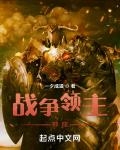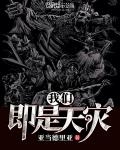Chapter 161 The Problem of the Small Property Owners
The problem that Li Wei discovered this time, to put it simply, is the legal issue of whether these small shop owners and workshop owners should be arrested and sentenced.
In a broader sense, it is a policy issue of how leaders should treat the small property owners in Zaun.
Going deeper, this may also be a question of whether private seed benzene is allowed to exist in the future leader base.
These young, passionate and idealistic cadres all believe that the Leader can establish Jannaism in Zaun in one step.
Therefore, the small property owners who represent private property should not continue to exist.
Even if these people may just run a small family workshop or a small shop with few employees, they are still the enemy of the leader.
"But at this stage, are the small property owners really the enemy?"
Li Wei started with this topic and started a discussion with everyone.
Because there are no farmers in Zaun, the small property owners in Zaun probably refer to those small shop owners, small workshop owners, and small intellectuals, including skilled workers, alchemists, mechanical engineers, etc.
"And these small property owners can be roughly divided into three categories."
"The first category is those who have extra money, that is, through work, labor, production and management, they can have a lot of extra money after they are self-sufficient."
There is money, and there is still some money left to invest, manage finances, expand reproduction, and there is hope of getting rich.
Of course, this type of people naturally don't want to change the status quo.
Their economic status is close to that of the bourgeoisie, and they tend to remain on the sidelines and be skeptical of the struggles of the leaders; but they are not the real big bourgeoisie and will not have overly deep hostility towards the leaders.
"This kind of people are neither friends nor enemies."
"If we are hostile to them, they will be an enemy. If we try to win them over, they can be a help."
Inappropriately, Singed is this kind of person.
He has no hostility towards the leader, but he also has no good feelings towards him. As long as the leader is willing to show goodwill, he is willing to cooperate.
Most of the citizens of Piltover are like this. They are not friends yet, but they can be won over.
“And the second category is people who can support themselves financially, but don’t have much extra money left.”
These people also want to make money peacefully, but objective conditions prevent them from doing so.
Their lives are better than most Zaunites, but they see no hope of getting better.
The Alchemist Baron's bone-sucking oppression of the people of Zaun can also be clearly reflected in these people.
Therefore, even though they dare not rashly join the movement because they are content with being well-off, they still naturally have a favorable impression of those who lead the way.
“These people can be friends.”
Zeli's parents are almost the same kind of people.
Although the Zach family's situation is special, it can also be considered as such.
"The last category is people who used to have a good life but whose living standards have been declining."
Not to mention this kind of people.
They are facing economic deterioration and even social class decline, so of course they are eager to change the status quo.
"They will definitely be friends."
Chuck, who was sold to the factory because his mother was injured, can also be considered as one of this type of people, although his situation is a bit extreme.
With these circumstances clarified, the answer becomes obvious:
"The purpose of struggle is to make more friends and fewer enemies.
"For now, most of the small property owners can fight for it and can all be friends of our Leaders Association."
"And everyone knows that our propaganda work among the local residents of Piltover over the past few months has gradually opened up the situation - after learning and understanding, these small property owners are generally willing to stand on the side of the leaders."
"But if we now take brutal measures to deprive the small property owners of their property, or even cruelly eliminate them physically, we will be destroying ourselves and pushing our potential friends to the enemy side."
Li Wei's lengthy explanation made many cadres think deeply.
But some people still questioned: "President Levi, I understand what you mean."
"But isn't our ultimate goal to achieve a harmonious society and eliminate private seed benzene? If we continue to allow these small owners to exist, then..."
His questions were very pointed.
Because the leaders’ belief theories encourage everyone to fight for the truth, and these leaders are people with true faith.
So when there are differences in the understanding of the truth , even if Levi is a respected president, they will not hide their true thoughts.
"You asked a good question." Levi was not afraid of debate.
This is exactly what he wants to make clear to everyone next, the next economic policy issue of the Leaders Association:
“After our base is established, the first task is to deprive the bourgeoisie of the means of production and transfer all the means of production and circulation to the proletarian base, the largest organization of the working class, through nationalization.”
“That’s not wrong.”
“But it should be noted that what is meant is not the expropriation of small production or small handicrafts, but the expropriation of the means of production of the big bourgeoisie, putting large-scale production on a new track and preventing it in a new way.”
To put it simply, it means only killing big households like Takeda and Saito, and not attacking small businesses like those that do small business.
One is to conduct united front work among the small property owners.
Second, Levi did not want to, and did not think that, those small property owners should be bullied.
They just opened small shops, small tailor shops, small blacksmith shops, or even just set up small stalls. They ran their business honestly and did not commit any crimes.
The Leader can deprive these people of their property only out of theoretical justice in Jana, not moral justice.
Killing the Alchemist Baron and his lackeys is naturally a great pleasure to the people.
However, using violence against a group of small property owners who have done nothing wrong...it would not sound good if this got out.
"We can't ruin the reputation of the Leader Association."
Yes, reputation. Levi cares a lot about that.
Because gods do exist in Runeterra, the most valuable asset of the Wind Leader is the reputation of the goddess Janna.
With a good reputation, faith will spread quickly, more people will be willing to accept it, and Goddess Janna will become stronger.
The reason why the Leader has been able to develop so rapidly recently is that Goddess Janna herself has a very strong mass base in the Twin Cities and is regarded by people as a benevolent god who protects them.
"The enemy has been trying every possible means to discredit us."
"If we were to use the same terrorist methods against the numerous small owners and small property owners in the Twin Cities as we do against our enemies in the big bourgeoisie, it would be a devastating blow to our reputation."
These are all secondary.
The real question is:
“Third, we are in great need of grassroots cadres with firm beliefs and reliable abilities.”
"If we rush to sweep away the small owners now, will we be able to reorganize these scattered small productions?"
It's a very simple truth.
Even though the small restaurant was confiscated, the people of Zaun still needed to eat.
Even though the tailor shops were confiscated, the people of Zaun still had a need to buy clothes.
These small industries were confiscated. In order to meet the demand, the Leaders Association had to find a way to reorganize these numerous small productions through nationalization.
If there is one less small shop, the leader will have to open one more state-owned store.
So, here comes the question…
Does Leader have so many grassroots cadres now?
"This requires not only a large number of grassroots cadres, but also grassroots cadres with firm beliefs and reliable abilities."
When a state-owned store is handed over to a cadre, he is given not only responsibility but also power.
If the person who holds this power does not have strong beliefs and is not of high quality, the damage he causes to the masses by using this power may be more serious than the profit exploitation demanded by private stores.
This problem is difficult to solve on Earth.
But there is hope in Runeterra.
Because of the purity of Janna's believers, they will always be supervised by the absolutely fair and selfless Goddess Janna.
Since there is such an ideal solution, why rush it?
If we rush to eliminate the small property owners now but fail to organize a reliable small-scale production system, it will only lead to chaos.
“In short, we can do our best, so we must be sure to do it.”
"I have always said that we cannot take big steps, because if we do, it will easily lead to chaos."
"So, before the Wind Leaders Association has completely established a foothold in Runeterra, Janna's ideas are widely spread, and a sufficiently reliable grassroots cadre team is cultivated, we must allow the existence of these small property owners."






